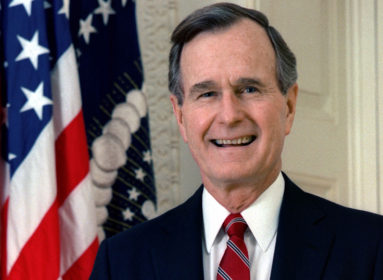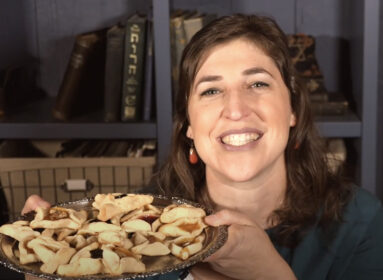
Jewish Ledger | 6/3/11
As we prepare to celebrate the holiday of Shavuot, we asked several local rabbis to talk about different aspects of the holiday.
What is Shavuot?
A: Shavuot is the second of the Sha/osh Regalim, the three Pilgrimage Festivals of earlier times in which our ancestors went to Jerusalem. We welcome Shavuot on the sixth of Sivan. Shavuot means ”weeks.” It refers to the timing of the festival, which is held seven weeks, fifty days, following the second day of Pesach. A day on which we cease doing work, Shavuot is a celebration of both the year’s first harvest and the Zeman Matan Torateinu, the season of the giving of the Torah at Mount Sinai. It is a joyous and important occasion, recalling our sacred covenant with God.
Shavuot has both an agricultural and an historical story attached to it. Because we were once farmers in the Land of Israel, Shavuot is closely tied with the harvest cycle. The Torah calls Shavuot ”Yom Habikkurim,” or the Day of the First Fruits, because farmers would bring the first fruits of their harvest, the bikkurim, to Jerusalem as an offering to God.
In addition, Shavuot commemorates the day when our ancestors, standing at Mount Sinai, received the Torah as a symbol of our covenant with Adonai. After God freed us from the Egyptians and led us through the Sea of Reeds, God led us to Mount Sinai. There, God spoke to us. For three days, our ancestors waited until finally, amid thunder and lightning, God spoke the words of the Ten Commandments. Here, we were given the Torah, the thread by which each Jew is connected; the basis of Jewish life as we know it.
What is the tradition of “Tikkun Leil Shavuot?”
A: One of the meaningful traditions that I look forward to every year is called Tikkun Leil Shavuot. In the medieval period, the Kabbalists created this ritual as an opportunity to express their love of Torah. They would study Torah all night on erev (the eve of) Shavuot in hopes that the heavens would open up and they would have an especially good chance to communicate with God. What better way to express appreciation for the Torah than to spend time immersed in Torah study? Temple Beth Tikvah will observe this tradition. Come join us for cheesecake and Torah study.
How is the holiday relevant today?
A: I believe that the answer about why this holiday is relevant today appears in Parashat Emor in the Book of Leviticus. There we learn that Shavuot harvest is linked with the way in which the land should be allocated to each individual. It says, “And when you shall reap the harvest of your land, you shall not entirely reap the comers of the field. . . You shall leave them for the poor and the stranger” (23:22). Thus, Shavuot is explicitly connected with caring for poor and hungry people. We can honor this tradition on Shavuot by donating food to soup kitchens or homeless shelters, or sending donations to organizations such as Mazon or any other place in need. In addition, it is appropriate to honor the Torah on Shavuot by supporting institutions of Torah study.
Finally, on Shavuot we read the Book of Ruth. As the great-grandmother of King David, Ruth is an important woman in Jewish tradition. As the Book of Ruth teaches, Ruth was not born a Jew. Rather, she converted to Judaism and accepted the Torah as the Jews did at Mount Sinai. Also, the story of Ruth is told during the time of the harvest period. It therefore seems appropriate to retell her story on this festival. Shavuot reminds us to welcome everybody to Judaism. Also, many congregations choose Shavuot as a time for young Jewish adults to reaffirm their faith in God. On Shavuot, some temples partake in confirmation ceremonies in which post bar and bat mitzvah students graduate to a higher level of Jewish education.
Rabbi Claudio J. Kogan, MD, MBE, Med is spiritual leader of Temple Beth Tikvah in Madison.
––––––––––––––––––––––––
Can you tell us more about the link between Shavuot and the land?
A: There are two roots to the holiday of Shavuot, the agricultural and the biblical. It is the time of the barley harvest, as the barley is the first grain to ripen in Israel. Therefore, as the time of the first fruits, bikkurim, the holiday is one of three agricultural pilgrimages.
Our people were farmers and grew all their proteins – legumes and grains, and animals. So we thank God for these pleasures by giving back the first fruits and feeding ourselves, the priestly class, and the poor, out of the blessings God has given us. There are several allegories pertaining to what “first fruits” might mean. This is the season of graduations and confirmations and weddings.
It’s time to revisit the vision of what it means to have these blessings and a sustainable and real relationship with the harvest as our form of wealth.
Rabbi Andrea Cohen-Kiener is spiritual leader of Congregation P’nai Or in West Hartford.
––––––––––––––––––––––––
Why do we eat dairy foods on Shavuot?
A: I often tell people that whenever you ask a question about a Jewish practice and you are given several answers, it means that no one really knows what the original answer was. I’m only half-joking, because in each answer that we get we learn something about the concerns of the Jewish leadership at a certain point in time, and each teaching can offer something meaningful. In the case of eating dairy on Shavuot, among some of the more ‘traditional’ answers we sometimes hear that it has something to do with observing Kashrut – a precaution against breaking the covenant the very moment we received it, but that is clearly a later lesson expressing concern that we uphold the laws that provide the infrastructure which shapes Jewish living in response to Revelation.
I prefer a more allegorical set of meanings. Torah is likened to milk – something that provides life to newborns, nourishing and sustaining them in their infancy. Likewise, the Hebrews standing at Sinai were in their infancy as a people and were to build a society upon the bedrock of ethical and ritual practices that would enable them to endure and mature. Mystics also point out that the Hebrew for milk, chalav = 40 (chet -8, lamed -30, bet -2) – the number of days that Moses stayed on Mount Sinai.
But I am also drawn to a deeper mystical teaching. Rabbi Nachman of Bratslav (1772-1810) gave one of his most significant lessons one erev Shavuot, dressed in white, in which he described how we can effect a tikkun haklali – a complete healing – of the fractured kabbalistic Tree of Life. Just as when our thought, speech and deed are in alignment and we are in spiritual alignment, so we can bring the sephirot of the Tree of Life into alignment in the spiritual realm, and the Zohar describes the flow of Divine Presence throughout the worlds as being like a lactating mother. While the specifics of the Zohar, and Rabbi Nachman’s explanation are complex and multi-layered, at its essence is the idea that Torah provides a guide to spiritual daily practice in all we think, say and do, and each one of us can bring a piece of healing and wholeness to our world through mindful living. I’ll raise a slice of cheesecake to that!
Rabbi Rachel Gurevitz is the Associate Rabbi at Congregation B’nai Israel, Bridgeport.
––––––––––––––––––––––––
Why so much eating on Shavuot?
A: Some people would some up the Jewish holidays in the following way: They tried to kill us, we won, let’s eat!
And so it is. Passover: freedom from Egypt. Chanukah: victory over the Greek. Sukkot: miraculous life in the desert. Purim: The fall of Haman.
The exception to that rule is Shavuot; we celebrate the giving of the Torah at Sinai.
And yet, as opposed to all the other holidays where there are specific mitzvot to be observed, the only mitzvah on Shavuot is to stay away from work and enjoy the holiday – with delicious dairy food and drink! In fact, Shavuot is the only holiday when fasting is absolutely forbidden! Which is odd being that other than the High Holidays; Shavuot is the only one that lacks any real physical miracle or occasion.
Perhaps this goes to the very essence of Shavuot.
On Shavuot we were given the Torah. We were charged with a mission and given a system by which to live our lives – to sanctify the most physical and material elements of life. Making cheesecake holy may sound fictitious but that’s why we got the Torah: That’s why we celebrate Shavuot; To make cheesecake holy. To find purpose in the mundane. On a day when we celebrate the descent of the Divine in an unprecedented communication with mankind, we remember to focus on the ascent of humanity into the role of filling the world with a purpose and spiritual meaning. Torah is our guide to make each and every experience in life, from the hours we spend in prayer and study to the first bite into the blessed cheesecake full of divine and spiritual meaning. And that’s what we’ll be celebrating.
Rabbi Chezky Deren is spiritual leader of of Chabad of Stamford.








 Southern New England Jewish Ledger
Southern New England Jewish Ledger













